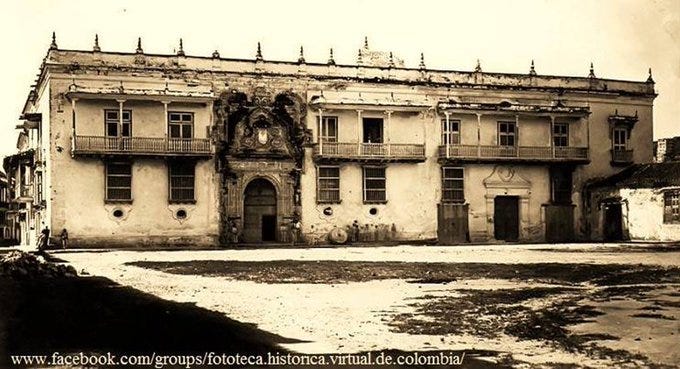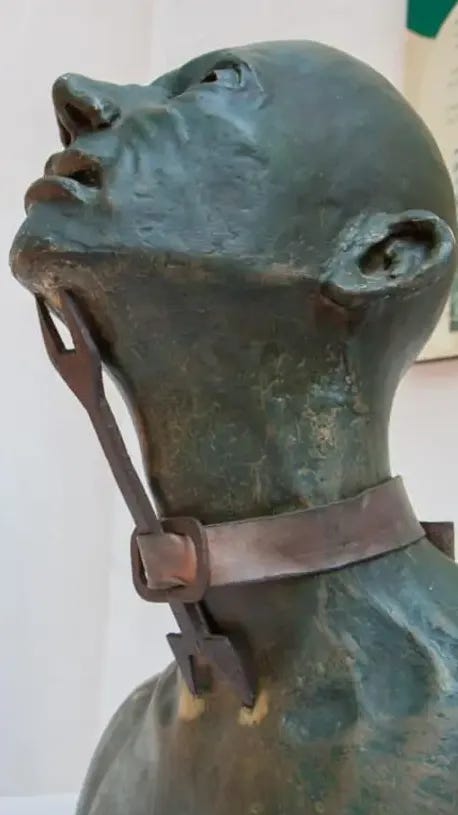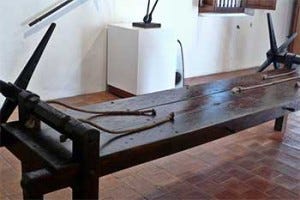The Lingering Remnants of the Spanish Inquisition in Cartagena, Colombia, Described In A Novel. An Awakening To A Hidden Past.
Excerpt from Benny Goldfarb, Private "I" by Howard Feigenbaum
Palace of the Inquisition
After sleeping in and a late breakfast, we decided to see the sights of the old walled city. A short taxi ride brought us to the gates of the ancient fortress.
Tourists walked the cobblestone streets of Cartagena de Indias, as the Spanish named it. The old city featured preserved historic buildings and bright pastel walls. Street vendors hawked cold drinks, fruit, cheap jewelry and souvenirs of all kinds, luring the cruise ship passengers who would be gone in a few hours.
Rosa and I held hands as we strolled, stopping in front of the Palace of the Inquisition.
She stared at the doors, made from thick slabs of wood bearing wrought iron hardware. “In all my years of living here, I have never been inside.”
An ornately-carved stone arch highlighted the building’s entrance. The thick white walls and second floor wood balconies were typical of colonial construction. A steady stream of people passed in and out of the portal.
“Do you want to go in?” I asked.
“I am not sure. I remember the pain Señor Peres felt in telling us how his family suffered during the Inquisition. What if that history also touched my family? Maybe I would rather not know.”
A large plaque on the wall explained that the Inquisition came from the desire of the Spanish to have a unified society. That was it. Some heretics and witches were forced to confess their sins through trials by ordeal. The description reduced the centuries-long event to the status of a misguided social anomaly.
“There is no mention here of Jews at all,” Rosa said. “They edited history.”
The museum displayed instruments of torture and death as antique curiosities from an ancient past. Visitors took photos of each other, inserting their hands and heads into metal devices, racks and stocks, smiling for the camera and the folks back home. A table which had leather straps and a mechanical wheel captured the tourists’ attention. The device could stretch the human body until the arms or legs were torn away or hold someone in place until a nearby sharpened long-axe severed a limb.
We passed into the central courtyard garden. To one side, a scaffold supported the hangman’s gallows.
Rosa looped her arm through mine and held tight, her face ashen.
“I cannot believe what I am seeing,” she said. “This is horrible. I do not understand how anyone could be so cruel—that this was part of life in Cartagena.”
We returned to the lobby and sat. “The mere sight of these things would be enough to make anyone surrender his faith,” I said.
Rosa’s voice quavered with emotion. “My family has been in Cartagena for generations. There was a cloud covering my understanding of the past, until now. There were questions my parents could not answer.” Tears rolled down her cheeks.
I held her. I realized the inheritor of the tragedy wrought by intolerance was in my arms. The dust of time had obscured the abomination. Through force, arising from the power of the Church and carried out by the State, the faith of Cartagena’s Jewish citizens was stripped away. Violence and fear eroded a heritage carried through thousands of years and brought to the New World. Only remnants remained, clinging to fading memories.
A sign in the lobby indicated there was more to see on the second floor.
“I have seen enough,” Rosa said.
We walked outside into the shadows created by the waning sun.
“I understand now,” Rosa said, interrupting our silence. We walked to the taxis waiting for passengers leaving the old walled city. “That Palace is part of my past. My ancestors’ voices were crushed into silence. Their secret was part of their everyday existence so they could survive. I know their agony.”
There were no words I could say that would bring solace. I could only offer a modicum of comfort. The grief was hers to bear, for herself and her family. “Are you ready to leave?” She nodded. I hailed a cab . . .
Our visit to the Palace of the Inquisition ran over and over in my mind. I felt like the boulders of an avalanche set in motion centuries ago were still knocking people down. I wondered how this would end.






